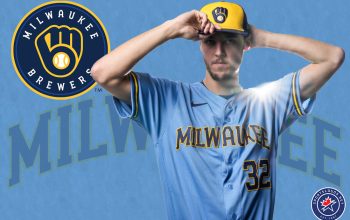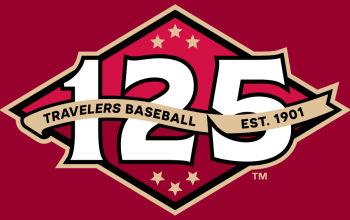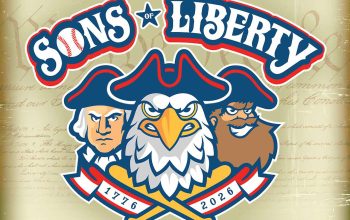
The Portland Rosebuds were one of six teams in the short-lived West Coast Baseball Association, a Negro League that lasted a mere two months in 1946 before disbanding. The league boasted some heavy hitters, so to speak, including Harlem Globetrotters owner Abe Saperstein, who headed the league, and four-time Olympic gold medalist Jesse Owens, who owned the Rosebuds.
In spite of the impressive pedigree of some of its higher-ups, we don’t know much about the league or its teams, and with each passing day, more of that heritage is lost to history. But one modern-day club is doing its part to keep history alive—for the first time in 75 years, a team called the Portland Rosebuds is taking to the field, this time in the form of a collegiate summer level team in the Wild Wild West League.
“We have a responsibility because we are in Portland to tell the history of our community,” said Alan Miller, co-owner of the league. “This is an important part of what happened in the history of baseball in Portland. I think what our first step here is just creating an education, being able to educate people that it was a thing, and it did happen.”
The challenge in educating the community about the Rosebuds is that information about the team is hard to come by. Baseball historian, author, and commissioner of the West Coast League Rob Neyer, who is not formally associated with the Wild Wild West League but describes himself as “a friend of the league,” developed an interest in the Rosebuds about two years ago, and began researching the team.

“Almost nobody in Portland—except for the few people who were around in 1946 following baseball, which has got to be a small number at this point—know anything about it,” Neyer said. “I can tell you when I started doing research a year and a half or two ago, almost everything I read about that league was wrong.”
“We had to do a lot of work to figure out who they were, who they played, what they did, everything about them,” Miller said.
In conversations about the history of baseball in Portland, Neyer and Miller came up with the idea to resurrect the team in some way. The first idea was to have the Portland Pickles, a team owned by Miller in the West Coast League, play select games in 2020 as the Rosebuds as an alternate identity. When COVID-19 subverted the 2020 season, things changed.
With the West Coast League season canceled, Miller and the Portland Pickles created the Wild Wild West League with just two teams, the Portland Gherkins (farm team to the Portland Pickles) and Gresham Grey Wolves. When 2021 rolled around, the league expanded to four teams, adding the Willamette Wild Bills and the revived Portland Rosebuds.

“As we had extra time on our hands in 2020, we really started to get deeper and deeper into the story,” Miller said. “We had more time to go back and build an identity that honored what we thought it could have been and looked like, to update and create something entirely its own.”
Before the pandemic closed the libraries, Neyer researched the Rosebuds with the Pickles’ general manager, Ross Campbell, who is instrumental in the operation of the Wild Wild West League
“In particular,” Neyer said, “we were looking for photographs of their uniforms, which have been very difficult to come by. So far as I know, we still don’t know what the Rosebuds wore.”
With little to no idea of what the original Rosebuds uniforms looked like, the team set about creating something new, but appropriate.

“We wanted to be able to represent something that really pays homage to the history of the some of the fashionable elements of the uniform culture of the time,” Miller said. “We didn’t want to do a bad interpretation of what they were doing, and we also didn’t want to create something entirely new.”
When the Rosebuds played their first game June 17 of this year, it reopened a door that had been closed for three-quarters of a century.
“The beauty of the Rosebuds and the Rosebud brand is this incredible sense of birth and rebirth,” Miller said. “So we really wanted to bring that to life in a way that is like, hey, we’re shining a light on something that happened, but doing it in a new way that creates its own identity.”
While Neyer and Miller have been doing a lot of research, they hope that having a team called the Rosebuds playing in Portland again ignites curiosity and brings new information to light.
“If you can find the sources, that’s the hard part,” Neyer said. “They just weren’t covered that much, these teams, especially these ones that weren’t in the so-called major Negro leagues. There are so many great stories out there, now we’ve just got to dig in and find more of them.”
And some of those stories may come from the community itself.
“There’s a lot more information out there, and the more we can put out there as possible, then other people will come forward with new information and really help complete the story,” Miller said. “And then people at that point are really able to take the story for themselves. If they’re interested in learning more about it, there’s more to learn. If they’re interested in putting the pieces together with the history of other places, they can do that.”

Interest in Negro Leagues baseball is experiencing a resurgence nationwide in recent years, largely driven by the efforts of the Negro Leagues Baseball Museum in Kansas City. The museum last year commemorated the 100th anniversary of the founding of the Negro Leagues, it was instrumental in Major League Baseball’s announcement that it would acknowledge certain Negro League statistics as Major League stats, and museum president Bob Kendrick’s new podcast Black Diamonds has been extremely popular. In addition, Major League and minor league teams have been honoring Negro Leagues teams with throwback uniforms and other acknowledgements.
The Rosebuds and their efforts to educate community members about the historic team are part of this nationwide interest. The segregation that led to the necessity of Negro Leagues baseball is a tragic part of these stories, and the fact that some leagues—like the West Coast Baseball Association—succumbed to the considerable obstacles placed in front of them before they could get off the ground is further evidence that baseball and the nation at large were denied so much.
Seventy-five years later, today’s Portland Rosebuds are a reminder of how much we’ll never know, and how much we have to learn.






